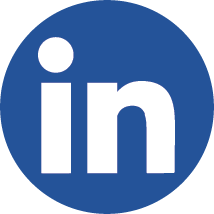President’s Memo: 2017 Already?
State Board Report
January 2017
We all probably remember when our parents or grandparents would say: “The older you get, the faster time goes by.” Now we all know that time does not really advance any faster as we age, but I am to the point in my life that time does indeed seem to fly by. As I was preparing to write this “Memo,” and considering forthcoming topics and events, I looked at my calendar and had the thought: Is it really 2017 already?
Probably we all clearly remember 17 years ago, when our calendars were about to roll to the year 2000. While the use of computers then seems minimal compared to our reliance on IT today, the big fear on New Year’s eve 1999 was the “Y2K problem” or the “Millennium bug” that was going to disrupt life as we knew it. It was feared that computers would crash, planes couldn’t fly, trains would stop, lights would go out and the proverbial sky would fall. Most major businesses, governments and even the world’s military community had “code red” teams standing by for the inevitable calamity. However, by the end of the first week of January 2000, it became clear that almost nothing bad had happened. A couple of software products, such as spreadsheets, defaulted to the wrong dates and some electronic calendars had to be reset manually, but the sky certainly didn’t fall.
In the year 2000, again just 17 years ago, the Wall Street Journal published an article in its “Technology” section that described the phenomenal use of SMS (text messaging), proclaiming that some users were averaging 35 text messages per month and that some services were charging as much as $1 per text message. I am writing this article on a Saturday morning, during the holiday period, and when I just checked my device, I had received 11 text messages plus more than 20 e-mails in the past two hours. In the New Year 2000, the iPhone would not be invented for another seven years, and the iPad for another 10 years. What some predicted to be a passing fancy turned out to be a commodity with the expectation of instantaneous communication and information.
The use of technology has changed our means of communication, our work days (how many of us are responding to e-mails and texts during our “time off”), and even how we think. For the incoming business generation, “Gen Z,” electronic communication is the norm and its usage will only increase as technology advances.
In my speech at the NASBA Annual Meeting in November, I predicted that the practice of accounting and auditing would change more in the next five years than it had in the past 50 years. While much of this “Memo” is intended to be a simple reminder of just some of the significant change that has occurred in the past 17 years, my point is that, even when the level of change is fast and extensive, the outcome is typically positive.
This year NASBA will be discussing and working with the PCAOB, FAF and other U.S. and international regulators and educators to see how we can best be prepared to regulate in this rapidly changing environment. On January 4, the NASBA Standard-Setting Advisory Committee will begin discussions on the profession’s use and reliance on data analytics and technology, and if and how current standards sync up to those changes.
NASBA is also looking at current regulatory laws, including the model Uniform Accountancy Act, to make sure that Boards of Accountancy have the statutory authority and legislative tools to adequately regulate in the increasingly technologically complex environment.
As with the example of the Y2K false predictions of gloom, we need to be careful to not confuse preparedness and forward thinking as somehow portending doom. The coming years will bring tools and levels of precision that can continue enhancing public accounting’s relevance for public protection. In 2034, inevitably someone will be writing about the amazing and unprecedented changes of the past 17 years. Someone may be sitting at this very desk writing: “2034 already?” I hope to be reminding her or him of this “Memo.”
I would like to take this opportunity to wish each of you an exceptionally healthy, happy and prosperous New Year, and to thank you for the service that you provided to the public in 2016.
Semper ad meliora (Always toward better things).
-Ken L. Bishop
Presiden & CEO






